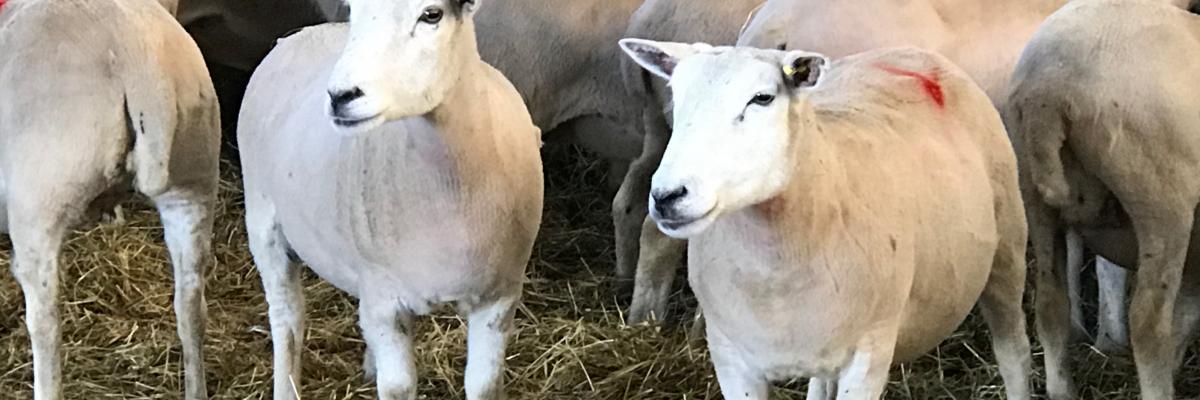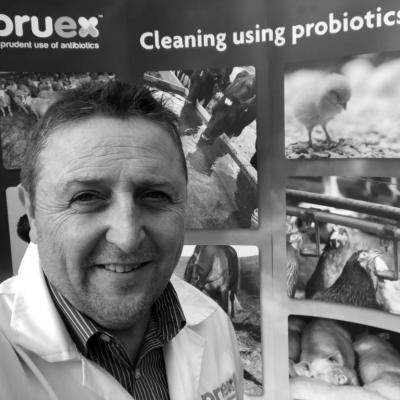
The fight against anti-microbial resistance - how can you improve your animal health & production?
30 September 2019
The end of the Second World War saw an increase in the need for food. It’s also the period where antibiotics first became available to doctors and veterinarians to treat bacterial infections. As farmers, we reacted to this call to arms and set about feeding our people. Stocking rates increased as we took animals from their natural ecology and put large numbers of them together in buildings with the aim of improving their welfare. The result was sick animals. We treated the clinically sick with antibiotics and even progressed to use antibiotics prophylactically, that is, we included them in feed and/or in water to prevent bacterial infections and to realise the production gains from not having sub clinical infections. Antibiotics, disinfectants (biocides), and antiseptic products allowed us to keep animals apart from the ecology they evolved in, an ecology that surrounded them and they were an integral part of.
A better understanding of the threat to human health of Anti-microbial Resistance (AMR), arising from the misuse of antibiotics, biocides and antiseptic products has made scientists sit up and consider the dangers of a return to a pre-antibiotic era where simple infections can’t be controlled by antibiotic use because the infective bacteria are no longer killed by the medicine, the bacteria have become resistant to the drug. A situation exists where biocides used to disinfect actually puts enough pressure on bacterial colonies to make them share their resistant DNA with other species of bacteria, spreading the resistant genes.
As farmers, we are now encouraged to only use antibiotics when essentially needed so that agriculture doesn’t speed up the journey towards a return to a pre-antibiotic era. But, we haven’t really changed the animals’ environments, apart from a focus on ventilation. We still house large numbers, they still get sick, but we are encouraged not to use antibiotics unless they are clinically sick. At the same time, we see demand growing for food products where antibiotics haven’t been used in the animals’ life time. These products command a premium based on an assumption that the animals were kept in high welfare systems and were very healthy. But is that reality?
I conducted a Nuffield Farming Scholarship looking at antibiotic use in agriculture throughout Europe, Austral Asia and Northern America over a two year period between 2015-16. I found high mortality rates accompanied low antibiotic use in fish, poultry, pig and ruminant sectors. The premium achieved for the market of antibiotic free livestock or products outweighed the losses from increased mortality rates. The animals weren’t healthier, and welfare was reduced. Animals were still housed as before, the only thing that had changed was a reduction in the use of antibiotics. Infection rates had not reduced as the animals were still being kept apart from their natural ecology.
As a result of conducting my Nuffield study, in September 2016, I set up Pruex Ltd, a company with the aim of leading the fight against anti-microbial resistance. We utilise soil and plant materials and add them to modern farming systems with the aim of drying up bedding, improving air and water quality. By improving the environments we keep our animals in, adding resources acquired from their natural ecology to their modern production systems, elements they don’t have access to, we keep them healthy. Healthy animals don’t need antibiotics.
Pruex conduct trials on every farm they trade with. Bacterial swabs are collected to establish the background challenges the animals face. The results enable individual farm/building protocols to be established. Further swabs are taken to ensure the dose rates suggested by Pruex are effective.
We planned to be able to reduce antibiotic use by improving the environments we keep our animals in. We didn’t realise that we would get increased production as well. The Nuffield Scholarship has allowed me to inspire positive change in agriculture and has given me the insight to lead the fight against anti-microbial resistance.
In June 2019, Pruex were commended by Public Health England with an Antibiotic Guardian Award. Pruex operate in several European countries. The company website www.pruex.co.uk is the first point of reference for interested farmers looking to improve their animal health, lower costs, and improve animal production.

Aled Rhys Davies was raised on a beef and sheep farm in West Wales. He has over twenty years’ experience working in a sales and marketing capacity, predominantly within agriculture. Having gained a degree in food marketing at Harper Adams Agricultural College, he studied to gain a professional qualification in strategic marketing whilst embarking on a career in sales. In November 2014, he was awarded a two year Nuffield Farming Scholarship to study and report on the topic 'Alternatives to Antibiotics in Agriculture.'


